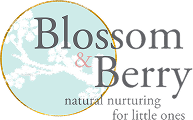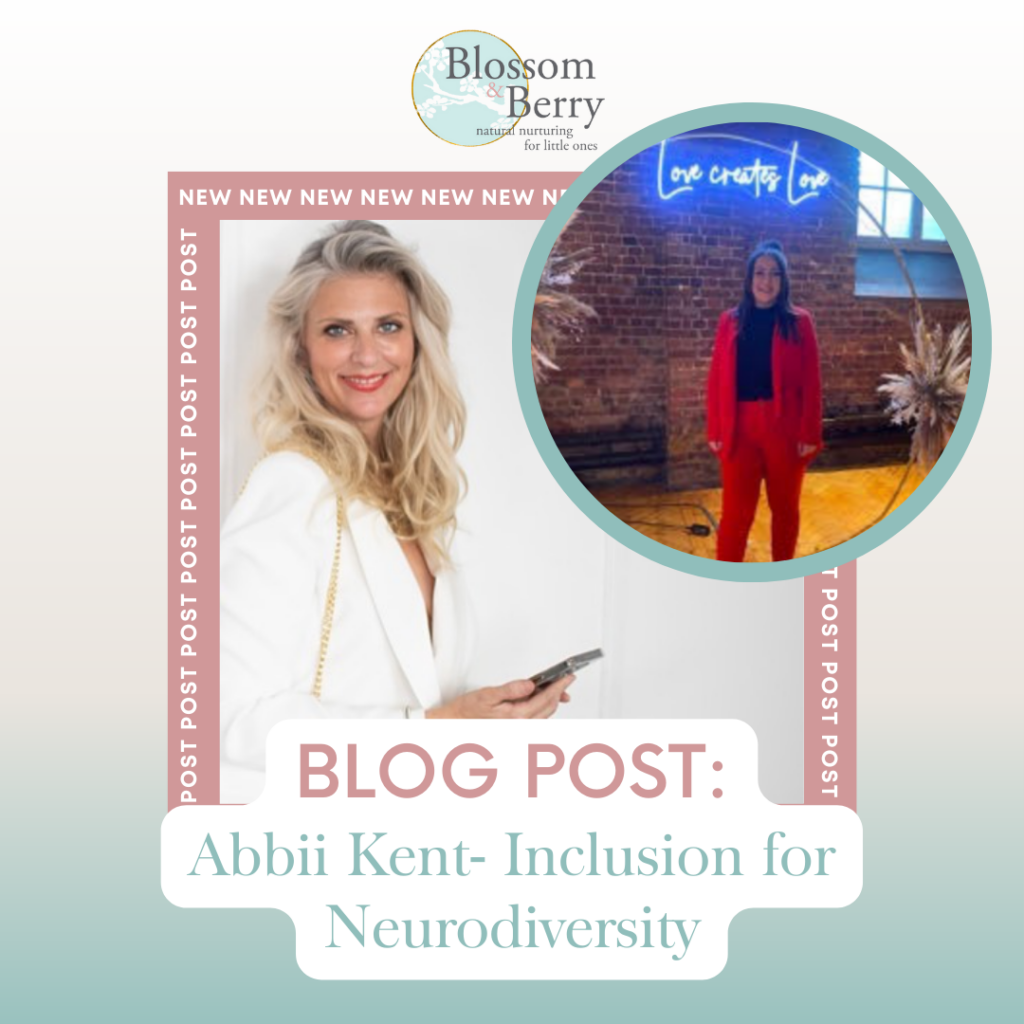Recently, we had the truly wonderful Abbii Kent on our podcast talking all about neurodiversity and people who are or may identify as neurodivergence, helping to get an understanding of what that means and how we can be more inclusive to those people, and I wanted to some of her wonderful brilliance with you all in this week’s blog. Over to Abbiie:
A little bit about me
I am the founder of Loving Little Minds, which is my little business where I teach baby classes. So I offer Hypnobirthing through to baby massage and baby yoga, and right through to developmental play at age five. I’ve been working in the early years now for 12 years and previously worked as a special educational needs coordinator.
My son’s name is Theo. He is now four years old and he himself is autistic and I myself as well identify as neurodivergent with ADHD.
What does neurodiversity or neurodivergence actually mean?
Now the way to explain it is neurodiversity means a range of differences in an individual’s brain function and behavioural types, or behaviour traits, that are seen as different from the typical human population. So basically, brains are wired and used differently from what is potentially seen as the norm. Now, I don’t really like to say ‘the norm’ because who is to say what is normal, but it is one of the ways that neurodivergence is explained.
I specialise in autism because I worked for many years with children with autism and then my son as well my little brother are both neurodivergent. But there’s lots of other examples of neurodivergence. It could be ADHD, OCD, Tourette’s, learning difficulties, dyspraxia, dyslexia, there is quite a wide range. The likelihood is that you would know someone in your life, or you’ll come across people in your life who are neurodivergent or you may be neurodivergent yourself.
I spoke a little bit about my son at the beginning and having my little boy Theo was massively the catalyst for me to really understand autism and learn so much and really appreciate and understand the importance of inclusion and creating safe spaces for children like my son and so many others. He has autism, severe and profound learning difficulties, global developmental delay, sensory processing disorder, and he is nonverbal.
Theo is quite a complex child and he does go to a special provision, but he is an absolute little gem and the light of my life, I always feel like I beam when I talk about him and there’s so many children just like him.
Creating Safe Spaces
I am really passionate, particularly in my business, to make sure that the space is safe. Now we know there are so many conditions that fall under the Neurodivergence umbrella. So how do we as practitioners, if it, you’re a practitioner that’s listening to this, how do we make sure that that space that you are creating is a safe one?
Now it’s not just neurodivergent babies and children that we want to be looking at. It’s also the parents of the children as well. There isn’t a one size fits all solution here,but it is about being a really compassionate and understanding human being.
For example, on booking forms ask if there’s any learning difficulty or additional need that you could cater for. And if they do, getting in touch with that family and finding out what it is that you could be doing to ensure that that space is the right place for them. What can you do to make it so they’re going to be able to thrive, they’re going to be able to stay in the session? I also believe in being really clear in your messaging that you are about making each person’s experience individual and special to who they are.
You don’t have to be an expert in this field to have the ideas of everything, it’s just about being a compassionate person. Sometimes it’s just about getting the right message across all people deserve and have the right, the human right to be treated the same as another.
Trauma Awareness
I also believe it is so important to be mindful and understanding of the trauma response or the trauma that people may hold from being involved or going to places that wasn’t a good experience for them.
So I always tell this same story that happened to me when I took Theo out. We went to a local soft play and he became really dysregulated, had a real sensory overload ’cause it was loud, it was busy, and we just couldn’t get out because he wouldn’t get in the pushchair and he wouldn’t get his shoes on. He was pulling my hair and scratching my face and no one in the room helped- it just felt like all eyes were on me. One parent had said I was ruining it for everybody else. After that it took me a while to then go out again alone with my son. I would only go out if my mum would come with me, we didn’t go to any other soft plays other than our local send session on a Sunday morning.
It’s just that the parent or the child might find that highly, highly stressful situation it is also being mindful of something that could really help to entice these people in. You know, it’s not enticing them in just to kind of tick a box that you have been inclusive and had different neuro types at your sessions. It’s having that level of awareness and that level of compassion and understanding so that people can trust and come and have a really good experience to really fix that trauma and that lack of trust that has been built up for them.
Levels of Need
When thinking about inclusivity, you’re going to have different levels of need. So I spoke about my son, he has got severe and profound learning difficulties, but this isn’t the same, for all people with additional needs.
It’s not our place to pry on what that difficulty is or what that level of need is for each individual person. But just being aware that if someone maybe pops on their booking form that they are autistic, it’s not your place to pry what level of need that is. It’s just be aware of what could be, you know, it could be that you don’t really notice any differences in them, or it might be that it is a high level of need and maybe they need a carer to come along to the class with them just to support them through that with their baby.
So if you’re working in the area of conception to two then the likelihood of you working with a child who is diagnosed or identified as neurodivergent is obviously slim however there could be that parents are starting to see these really early signs maybe of autism around the 18 month period- things like lack of eye contact and maybe not developing their social communication emotional skills. I must emphasise it’s not your place to diagnose nor to pick up on these things unless you’re working as a medical professional, then you will know what your rules are.
If a parent is to come to you and say, I’ve noticed X, Y, Z about my child, then you can be that person who really listens and really understands. And this is where it would be really, really useful to find out what happens in your county or your council or your local NHS.
It goes back to not needing to be an expert on everything, but just having that information where if someone comes to you with this, you can say, okay, you need to, when you are ready, go and speak to your health visitor, speak to your GP, speak to action for children, you know, whatever it is in your area, it could just be a quick email and you could really, really help someone where you are working.
So get educated so that you can go out into the world with compassion and love. Embrace everybody with so much love and so much joy. And with that, I give you so much love and joy.
Thank you so much for being here,
Abbii x

